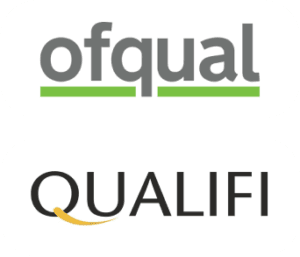Can You Get into University Without A-Levels
November 18, 2024 2025-05-04 11:34Can You Get into University Without A-Levels

Can You Get into University Without A-Levels
Entering university is a significant milestone. But not everyone follows the traditional path of completing A-Levels. If you’re wondering whether you can get into university without A-levels, the answer is a resounding yes. There are numerous alternative qualifications and pathways that can also lead you to higher education.
This article explores these options. We provide insights into how you can pursue a university degree without the conventional A-Level route. Let’s start by understanding the importance of A levels in getting into a university.
The Role of A-Levels in UK University Admissions
A-Levels have long been the standard for measuring academic readiness for university in the UK. However, they are not the only way to demonstrate your academic abilities. Universities recognize that students have diverse educational backgrounds and experiences. Many institutions are becoming increasingly flexible in their admission requirements.
Alternative Qualifications Recognized by Universities
For many students in the UK, A-Levels are seen as the standard path to university. However, if A-Levels aren’t part of your academic journey, don’t worry—you’re not alone, and plenty of options are still available. In fact, more and more universities are recognizing alternative qualifications, work experience, and different pathways as valuable foundations for higher education.
From vocational qualifications like BTECs and T-Levels to international diplomas and access programs, the route to university is more flexible than ever.
London Gate College
As an accredited distance university, we offer an alternative pathway for students seeking university entry without A-Levels. If you have completed high school, London Gate College allows you to start at Level 4 without needing to complete A-Levels.
This streamlined option can be ideal for students looking to progress directly into higher education after secondary school.
BTEC Qualifications
The Business and Technology Education Council (BTEC) qualifications are vocational courses that focus on practical, skills-based learning. They are designed to provide hands-on experience in specific industries.
University Recognition
BTECs are widely recognized by UK universities as equivalent to A-Levels. For example, a BTEC National Extended Diploma is considered equal to three A-Levels. This makes BTECs a viable option for those who prefer a more practical approach to learning.
Advantages and Challenges
The main advantage of BTECs is their focus on real-world applications. This can be appealing if you’re a practical learner. They are tailored to specific career fields, providing a clear pathway into industries like healthcare. However, they may not always be accepted for highly competitive courses like medicine. You should always check with the university to see if they accept BTECs for your chosen course.

International Baccalaureate (IB) Diploma
The International Baccalaureate Diploma is a globally recognized program with a broad and balanced curriculum. Its three core components are the Theory of Knowledge, Creativity, Activity, Service (CAS), and Extended Essay.
University Recognition
The IB Diploma is accepted by UK universities as an alternative to A-Levels. It’s recognized in over 140 countries. This makes it an excellent option if you’re considering studying abroad in the future.
Advantages
The IB Diploma encourages critical thinking and intercultural understanding. Its comprehensive curriculum prepares you well for the demands of university study.
Access to Higher Education (HE) Diploma
This one is designed for individuals who lack formal qualifications but want to attend university. The Access to HE Diploma is a one-year intensive program that prepares you for degree-level study.
University Recognition
Many universities accept this diploma for entry into various fields, including nursing, social work, and law. It’s particularly popular among mature students returning to education.
Advantages
The program equips you with the necessary academic skills and knowledge. It bridges the gap between your current qualifications and university requirements.
T-Levels
Another alternative to university without A-Levels is T-Levels. T-Levels are new technical qualifications in England designed to meet industry needs. They combine classroom learning with an industry placement. They offer a combination of practical and theoretical knowledge.
University Recognition
Equivalent to three A-Levels, T-Levels are increasingly accepted for university admissions. They cover subjects like Digital Production, Design, and Development. These are geared toward students interested in technical fields.
Advantages and Challenges
T-Levels provide in-depth knowledge and skills tailored to specific industries, enhancing employability. However, since they’re relatively new, not all universities may accept them for all courses. It’s advisable to check with the universities you’re interested in.
Foundation Year Programs
Foundation years are one-year preparatory programs that you can take to get the essential academic skills needed for degree-level study. They often focus on a specific subject area related to your intended degree.
Who Are They For?
These programs are ideal if you lack traditional qualifications like A-Levels or if you’re changing your field of study. They provide a smooth transition into university life and academics.
Advantages
One of the main benefits is that foundation years are often integrated into the degree program. This provides direct entry into specific courses upon completion.
Apprenticeships and Work-Based Routes
Higher and degree apprenticeships combine paid work with study. This allows you to earn a salary while gaining a qualification. They can lead to a degree or professional accreditation.
Advantages
The most significant advantage is financial. There are no tuition fees, and you earn a salary during your apprenticeship. This route also provides valuable work experience, enhancing your employability.
Disadvantages
Apprenticeships are not available for all subjects and can be competitive. They are often limited to fields like law, healthcare, and IT.

Mature Student Routes
Mature students are typically individuals over the age of 21 who are returning to education after a gap. Universities often have separate admission policies for them.
University Policies
Many universities offer flexible entry requirements for mature students. They recognize the value of life experience and professional skills.
Advantages and Challenges
Mature students bring unique perspectives and dedication. However, it can be hard for them to adjust to academic life after time away from formal education.
International Qualifications
If you’ve completed secondary education outside the UK, your qualifications might be equivalent to A-Levels.
Examples
- American High School Diploma with Advanced Placement (AP) Courses
- European Baccalaureate
Advantages
International qualifications allow students from around the world to apply to UK universities. They offer a range of perspectives to the academic environment.
University Recognition
Universities assess international qualifications on a case-by-case basis. You should check whether your qualifications meet the entry requirements of your chosen university.
University-Specific Access Programs
Some universities offer custom-designed programs for students without traditional qualifications. These programs are tailored to prepare you for a specific degree course.
Advantages
These access programs are integrated into the university’s curriculum. This provides a seamless transition into undergraduate studies.
Example
The University of Cambridge offers a Foundation Year for disadvantaged students who show academic potential. This program is fully funded and provides a pathway to a range of degree courses. Learn more at the University of Cambridge.
Open University and Distance Learning
The Open University offers flexible, distance-based higher education. This allows you to study from home at your own pace.
It’s ideal if you’re balancing work, family, or other commitments but still want to pursue higher education.
Advantages
One of the key benefits is that there are no formal entry requirements for most courses. This open admissions policy makes higher education accessible to a broader range of students.
Challenges of Non-Traditional Routes
Recognition Issues
Not all alternative qualifications are universally accepted. Some universities may not recognize certain credentials. It’s essential to verify acceptance beforehand.
Preparation for Academic Study
While these pathways offer access to university, they may not fully prepare you for the rigors of degree-level study. Additional effort might be needed to meet academic expectations.
Competitiveness
Spaces in foundation years or access programs can be limited. Admission can be competitive. Meeting the minimum requirements doesn’t always guarantee a spot.
Conclusion
Entering university without A-Levels is entirely possible through various alternative routes. If you’re considering this path, researching is important. Check individual university requirements and seek guidance to find the best route for you.
As mentioned above; London Gate College offers an alternative pathway for students seeking university entry without A-Levels. If you have completed high school, London Gate College allows you to start at Level 4 without needing to complete A-Levels.
Share this post
Contact Us




